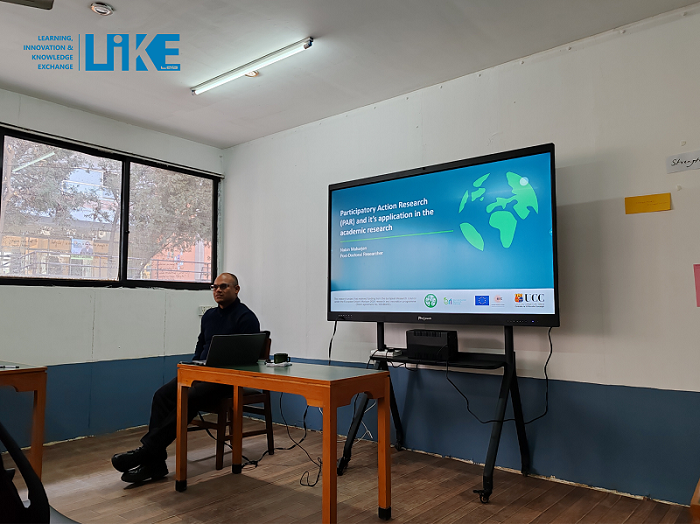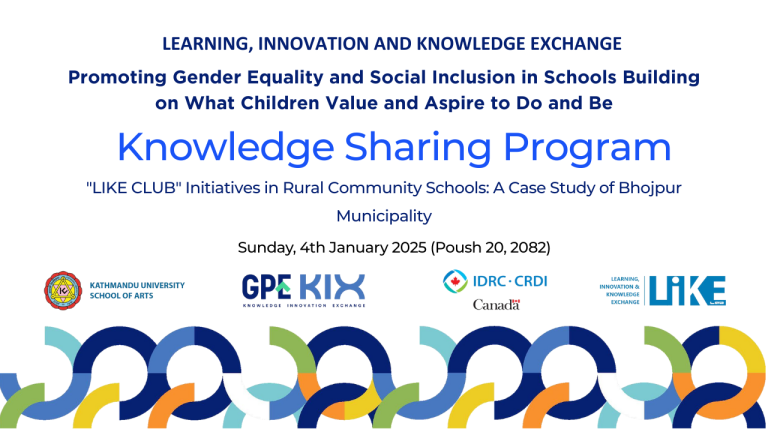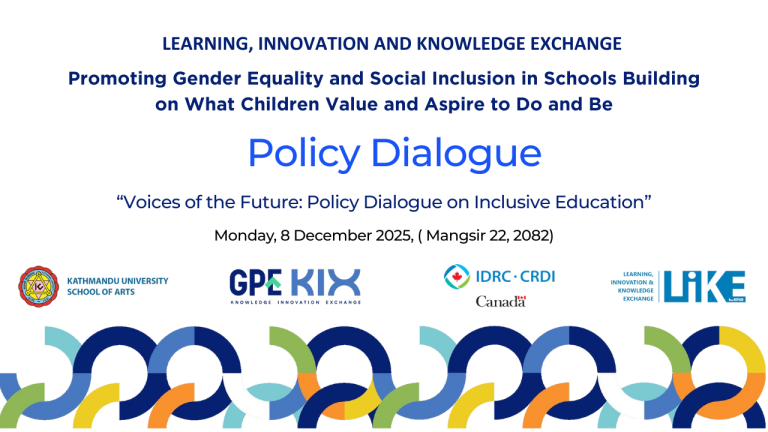
LALITPUR, NEPAL, January 17, 2025 – A learning session on Participatory Action Research (PAR) and its Application in Academic Research was held at Kathmandu University School of Arts, organized by the Learning, Innovation, and Knowledge Exchange (LIKE) Lab. The event, led by Dr. Nabin Maharjan, a Postdoctoral Researcher, School of Law, University College Cork, Ireland served as a platform for insightful discussions on the democratization and localization of research methodologies in Nepal.
Key Takeaways from the Session:
1. Democratic and Inclusive Research Practices: PAR promotes participatory approaches, empowering marginalized communities and fostering grassroots participation. Its democratic nature aligns with Nepal’s ethos of collective action, encapsulated in the saying “gau gau bata utha” (rise from every village).
2. Distinction Between PAR and PRA: Dr. Maharjan clarified the differences between PAR and Participatory Rural Appraisal (PRA), highlighting PAR’s focus on equity and empowerment, as opposed to PRA’s often commercialized applications.
3. Multidisciplinary and Transformative Applications: PAR transcends disciplinary boundaries, finding relevance in social work, education, and health. This trans-disciplinary approach fosters collaboration and consensus-building, crucial for addressing systemic inequalities and marginalization.
4. Challenges and Ethical Considerations: Despite its benefits, PAR faces challenges such as establishing community trust, navigating power dynamics, and addressing ethical concerns like data ownership and confidentiality. The open-ended nature of PAR research designs also demands significant time and commitment from researchers and participants.
5. Innovations in PAR Practices: The session showcased innovative methods, including the use of animations to represent findings and engaging children and youth as co-researchers. This aligns with efforts to decolonize research and create shared spaces for inclusive inquiry.
Discussion Highlights
The participants emphasized the need for more ethical protocols, particularly when working with vulnerable groups like children. The session also called for adopting holistic, trans-disciplinary approaches to align with PAR’s principles and address complex societal challenges. The session concluded with a call to mainstream PAR in academic and development contexts in Nepal. Dr. Maharjan’s insights underscored PAR’s potential to democratize knowledge creation, empower communities, and drive actionable change.



